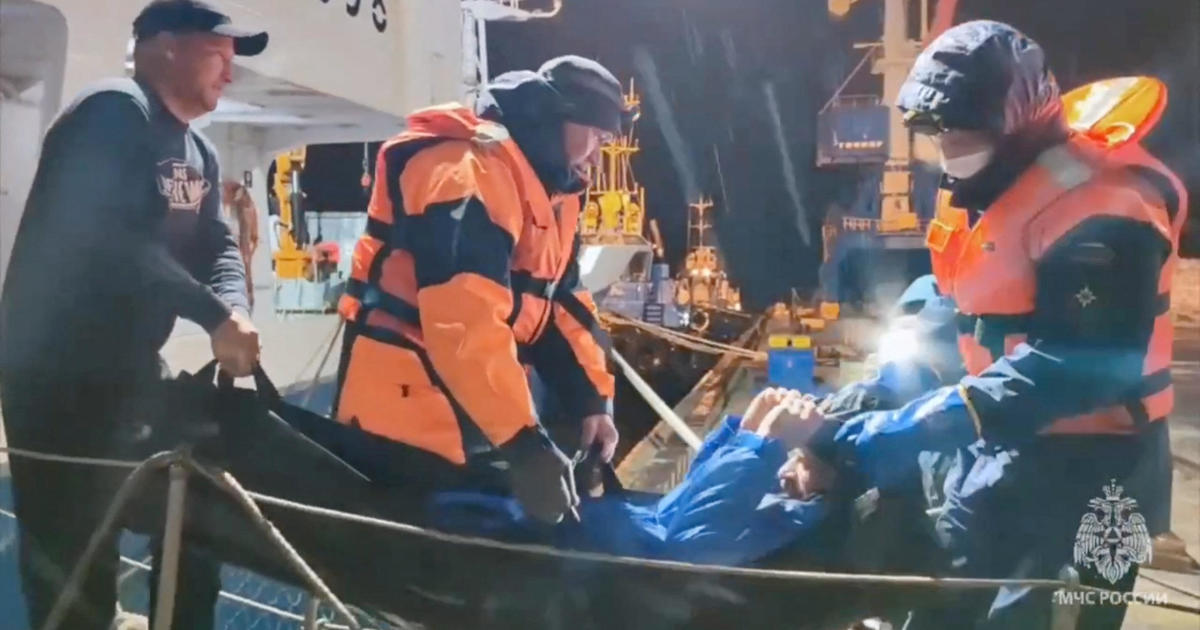The incredible story of Mikhail Pichugin’s survival at sea highlights the resilience of the human spirit and the unforgiving nature of the elements. Pichugin, a 46-year-old Russian man, endured over two months adrift in the frigid Sea of Okhotsk after his small inflatable boat lost its engine. This ordeal, which tragically resulted in the deaths of his brother and nephew, underscores the importance of meticulous preparation for sea voyages and the unpredictable power of nature. This account details Pichugin’s ordeal, the rescue efforts, and the investigation launched following the tragic loss of his family members.
The Perilous Journey and the Rescue
The Whale Watching Trip Gone Wrong
In early August, Pichugin embarked on a whale watching trip to the Shantar Islands in the Sea of Okhotsk with his 49-year-old brother and 15-year-old nephew. Equipped with provisions for approximately two weeks, including food, warm clothing, life jackets, flares, and around five gallons of water, they set out on what was intended to be a short adventure. However, their journey took an unexpected and perilous turn when their boat’s engine failed, leaving them adrift in one of the world’s coldest seas. The Sea of Okhotsk is notoriously known for its harsh weather conditions and unpredictable gales, making survival a daunting task. The family initially believed they were well-prepared; however, the sheer duration of their ordeal revealed the limitations of their provisions and planning.
A Miraculous Discovery
After more than two months at sea, a fishing vessel, the Angel, unexpectedly spotted Pichugin’s tiny inflatable boat on their radar. Initially mistaken for debris, closer inspection revealed the shocking sight of a severely emaciated man desperately waving for help. The crew of the Angel swiftly acted, bringing Pichugin to safety. The rescue occurred approximately 11 nautical miles off Kamchatka’s shore, a significant distance from their starting point on Sakhalin Island. This miraculous discovery brought an end to a desperate search and a long period of uncertainty for Pichugin’s family. The discovery also revealed the tragic fate of his brother and nephew, whose bodies were found tied to the boat to prevent them from being washed away by the relentless sea.
The Aftermath and Investigation
Pichugin’s Condition and Recovery
Upon rescue, Pichugin weighed a mere 110 pounds, having lost approximately half his body weight. Suffering from severe dehydration and hypothermia, he was immediately rushed to a Magadan hospital for emergency care. While his condition was initially described as serious, he was reported to be stable. His incredible survival against all odds captivated the world, raising questions about his resilience and resourcefulness. The story highlights both the resilience of the human body and the importance of having effective rescue systems in place for such unforeseen occurrences at sea.
A Criminal Investigation
Following the discovery of the bodies, Russian prosecutors launched a criminal investigation into the deaths of Pichugin’s brother and nephew. The investigation focused on potential violations of safety regulations that may have contributed to the tragedy. This investigation will play a crucial role in preventing similar incidents in the future and determining the causes that led to this heartbreaking loss. The outcome will have serious implications for future maritime safety practices and regulations in Russia. Details regarding the investigation are limited.
Lessons Learned and Comparisons
Survival Against the Odds
Pichugin’s survival echoes other incredible stories of endurance at sea. The case recalls the 1960 incident involving four Soviet soldiers who survived 49 days adrift in the Pacific Ocean. These instances demonstrate the remarkable capacity of the human body to endure extreme conditions, and underscore the critical need for preparation and the importance of rescue strategies. The harsh environment of the Sea of Okhotsk made survival so challenging; his survival is even more remarkable because of this fact.
The Importance of Preparation
This tragedy serves as a stark reminder of the importance of thorough planning and preparedness before embarking on any sea voyage. While Pichugin and his family initially seemed well-equipped for a shorter journey, the unexpected engine failure exposed the inadequacies of their preparations for such a prolonged ordeal. The lack of sufficient supplies and communication systems amplified the risk significantly. The details released about Pichugin’s survival provide valuable lessons and insights into necessary preparedness when engaging in such perilous ocean adventures. It emphasizes that planning for the unexpected is as crucial as planning for a journey’s expected aspects.
Take Away Points
- Thorough preparation is crucial for all sea voyages, especially in challenging environments like the Sea of Okhotsk.
- Communication systems and emergency plans are essential for ensuring safety in remote areas.
- Even with extensive preparations, the unforgiving nature of the sea can lead to unforeseen circumstances.
- Pichugin’s survival is a testament to the resilience of the human spirit, but his experience highlights the profound dangers of maritime travel.
- The criminal investigation underway will hopefully shed light on the causes of the tragedy and contribute to better safety regulations for future seafaring ventures.




